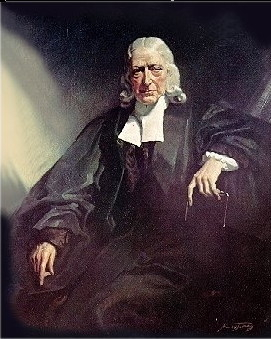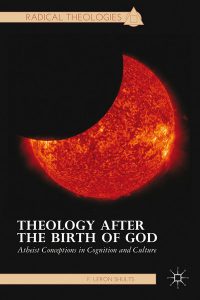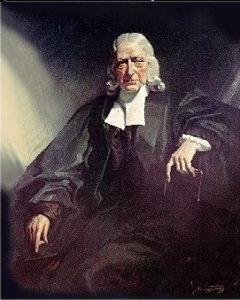John Wesley: Why Aren’t All People Saved?

“If you ask, ‘Why then are not all men saved’ the whole law and the testimony answer, First, Not because of any decree of God; not because it is his pleasure they should die; for, As I live, saith the Lord God, ‘I have no pleasure in the death of him that dieth.’ (Ezek. 18:3, 32.) Whatever be the cause of their perishing, it cannot be his will, if the oracles of God are true; for they declare, ‘He is not willing that any should perish, but that all should come to repentance;’ (2 Pet. 3:9;) ‘He willeth that all men should be saved.’ And they, Secondly, declare what is the cause why all men are not saved, namely, that they will not be saved: So our Lord expressly, ‘Ye will not come unto me that ye may have life.’ (John 5:40.) ‘The power of the Lord is present to heal’ them, but they will not be healed. ‘They reject the counsel,’ the merciful counsel, ‘of God against themselves,’ as did their stiff-necked forefathers. And therefore are they without excuse; because God would save them, but they will not be saved: This is the condemnation, ‘How often would I have gathered you together, and ye would not!’ (Matt. 23:37.)
(more…)My Call to Biblical Preaching
I am one of those pastors who came into the Christian ministry a clear sense of call. I could point to a particular moment in my life when I sensed God’s calling on my life. It was both surprising and overwhelming at the time. But, over time, it became the settled conviction of my heart that God was calling me to preach the Gospel in some way. And, I need to make that clear: in the earlier stages of my life the call I felt was toward preaching. When I started out I had very little conception of what pastoral ministry was and what it might entail. I had come to Christ at the invitation of an evangelist at a holiness camp meeting. The message of Christ had made a profound change in my life for the better. And, I wanted to share that message with others. I felt that a great favor had been done for me — a message of hope had been given to me — and I wanted to extend that favor to others. My attitude was the same as that expressed in the often quoted line from D. T. Niles: ““Evangelism is just one beggar telling another beggar where to find bread.”
 Biblical preaching had been crucial in re-directing my life. So, it was something I assumed would be the focus of my future ministry — and it was something I wanted to learn to do well.
Biblical preaching had been crucial in re-directing my life. So, it was something I assumed would be the focus of my future ministry — and it was something I wanted to learn to do well.
I sure have met a lot of people over the years for whom evangelical Christianity — and, I might add, holiness Christianity particularly — was an oppressive reality in their lives. It was something imposed upon them. It was a almost-constant threat of Hell. It was legalism. It was a rigid authoritarian mindset from which they later emerged with relief.
I get that. I have heard the story so often — in so many different forms. I understand.
But, that is not my experience. (more…)
God Is a Fool for Love
“Moses said, ‘Show me your glory, I pray.’ And he said, “I will make all my goodness pass before you, and will proclaim before you the name, ‘The LORD’; and I will be gracious to whom I will be gracious, and will show mercy on whom I will show mercy.'” — Exodus 33:18, 19 NRSV.
“At this mo ment, it is not Moses the religious-political leader of Israel speaking, but Moses the mystic, the ardent lover of God. The public need has been met: God has promised twice already to go up with the people into the Promised Land. You would think Moses would be satisfied, but instead he presses for one more thing: a favor for himself alone, a glimpse of God’s exquisite beauty. Of course God is flattered. Who would not be thrilled to know that a lover through many years and many domestic crises still finds one desirable, desirable just for oneself, when the children’s needs have been met and there is nothing to be sought or gained but the simple joy of intimacy? It is only in that request for a private revelation that God feels the purity of Moses’ love. Of course God capitulates, happily, even to the point of indignity. For as the whole Bible makes undeniably clear, God is a perfect fool for love — fool enough even to become human, to live and love as we do, and to weep because he loves; fool enough to suffer and die on a cross.”
ment, it is not Moses the religious-political leader of Israel speaking, but Moses the mystic, the ardent lover of God. The public need has been met: God has promised twice already to go up with the people into the Promised Land. You would think Moses would be satisfied, but instead he presses for one more thing: a favor for himself alone, a glimpse of God’s exquisite beauty. Of course God is flattered. Who would not be thrilled to know that a lover through many years and many domestic crises still finds one desirable, desirable just for oneself, when the children’s needs have been met and there is nothing to be sought or gained but the simple joy of intimacy? It is only in that request for a private revelation that God feels the purity of Moses’ love. Of course God capitulates, happily, even to the point of indignity. For as the whole Bible makes undeniably clear, God is a perfect fool for love — fool enough even to become human, to live and love as we do, and to weep because he loves; fool enough to suffer and die on a cross.”
— Ellen F. Davis, Getting Involved with God: Rediscovering the Old Testament
Resurrection Happens
This was posted on my old blog on March of 2013. I have resisted the temptation to tone down the sentiments expressed here.
 Right around the time I formally retired from the United Methodist ministry, I surprised myself. I recognized that I was still a Christian. In a way, nothing had changed. Yet, somehow it had.
Right around the time I formally retired from the United Methodist ministry, I surprised myself. I recognized that I was still a Christian. In a way, nothing had changed. Yet, somehow it had.
And, that’s how it still is. I still hunger for worship. I still interpret life by reference to the Bible and the historic beliefs of Christians. I still want to lead others to Christ. I still want to pray. I still love to preach. I still wish I could teach the Bible.
It’s all pretty weird in a way.
Things went bad in the last full time parish I served in the United Methodist Church. The issue had to do with my wife and my family. If it had had to do with me and my conduct of ministry that would have been bearable — but, the attack centered on my wife and family. And the Bishop of the Michigan Area of the United Methodist Church sided with the church against my wife and family. (more…)
Rob Bell on Doubting God on Easter
I originally posted this on my old blog on March of 2013. I have made a few, minor editorial changes.
 In a book entitled What We Talk About When We Talk About God, Rob Bell speaks of a time when he was troubled by doubts about God.
In a book entitled What We Talk About When We Talk About God, Rob Bell speaks of a time when he was troubled by doubts about God.
He writes:
One Sunday morning a number of years ago I found myself face-to-face with the possibility that there is no God and we really are on our own and this may be all there is.
Now I realize lots of people have questions and convictions and doubts along these lines — that’s nothing new. But, in my case, it was an Easter Sunday morning, and I was a pastor, I was driving to the church services where I’d be giving a sermon about how there is a God and that God came here to Earth to do something miraculous and rise from the dead so that all of us could live forever.
It’s Good to Have Desires That Can’t Be Fulfilled
 I can’t really comment on this passage extensively, because I’m not absolutely sure I fully understand it myself:
I can’t really comment on this passage extensively, because I’m not absolutely sure I fully understand it myself:
Lovers and friends have two desires. One is to love so much that one enters the other to make a single being. The other is to love so much that with half the earthly globe between them, their union would not suffer any diminishment. Everything that we desire vainly here below is perfect and real in God. Those impossible desires are within us as a mark of our destination, and it is good for us when we don’t hope to accomplish them.
Love between God and God, which is itself God, is the link of a double virtue; this link that unites two beings to the point where they are indistinguishable and really are one soul, the link that extends itself across the distance and triumphs over an infinite separation. The unity of God where all plurality disappears, and Christ’s abandonment of belief in being found, yet without ceasing to perfectly love his Father — these are forms of divine virtue of the same love, which is God Himself.
God is so essentially love that unity, which in a sense is its actual definition, is a simple effect of love. And corresponding to the infinite virtue of unification of this love is the infinite separation over which it triumphs, which is all of creation, spread through the totality of space and time, made of brutally mechanical matter, interposed between Christ and his Father.
— Simone Weil, “The Love of God and Affliction” Awaiting God (pp. 37-38). Fresh Wind Press. Kindle Edition.
The oneness we desire in love is something we never fully experience in this life. But, it is a pointer. It points us to who we really are as beings created in the image of God. It points us to God — in whom alone are we will find the fulfillment of our deepest longings and desires. Thus, having unfulfilled desires is a good thing — and important aspect of being human.
Supernatural Agent Detection (Part 2): What’s Credible?
[This post follows on the heels of two previous posts on the (anti-) theology of F. LeRon Shults. They are: An Atheist Theologian, and Supernatural Agent Detection (Part 1): At the Hymn Sing.]
In my previous post in this series, I talked about the theory of “anthropomorphic promiscuity” as a mechanism of supernatural agent detection among early human beings — or, you might say “hominins” if you’re a bit embarrassed about being one yourself. I said (and I am really only reacting out of my own experience about the credibility of this) that the theory seems quite credible and certainly accounts for much God-detection in our own day as well — though, I think this is mostly bad (or mistaken) God-detection.
 As I mentioned previously, the theory can be found in atheist theologian F. LeRon Shults book Theology after the Birth of God: Atheist Conceptions in Cognition and Culture as well in several of the essays available at his web site: especially Bearing Gods in Mind and Culture, and Excavating Theogonies: Anthropomorphic Promiscuity and Sociographic Prudery in the Neolithic and Now.
As I mentioned previously, the theory can be found in atheist theologian F. LeRon Shults book Theology after the Birth of God: Atheist Conceptions in Cognition and Culture as well in several of the essays available at his web site: especially Bearing Gods in Mind and Culture, and Excavating Theogonies: Anthropomorphic Promiscuity and Sociographic Prudery in the Neolithic and Now.
Put simply, it is a “god of the gaps” view. There was an evolutionary advantage enjoyed by those early peoples who posited the existence of human-like supernatural beings to explain otherwise ambiguous aspects of human experience. So, natural selection favored those who believed in the gods.
This, by the way, is what he means by “the birth of God.” God is borne in human minds as a way of helping people explain their life in the world — and affords them a significant survival advantage.
As a theory this works well for me in some ways — and doesn’t in others. Having said that I feel it does account for some supernatural agent detection, I wish to also indicate some ways (it seems to me) this doesn’t work. (more…)
Supernatural Agent Detection (Part 1): At the Hymn Sing
A long time ago, while I listened to some spontaneous testimonies, I began to wonder where people get their ideas of God.
 When I started out in the ministry (many years ago) I served a small church in the Muskegon, Michigan area. I was young and skinny and had a major chip on my shoulder. I was convinced of the evil of all things (theologically) liberal. (You can get an idea what I looked like at the time from the picture on the left.) I was opposed to all things that smacked of clericalism, very introverted, very opinionated — thinking back on it its a wonder that the people at the Wolf Lake United Methodist Church put up with me to the extent that they did. (People that haven’t known me a long time might be surprised that I was ever like that — but I was.)
When I started out in the ministry (many years ago) I served a small church in the Muskegon, Michigan area. I was young and skinny and had a major chip on my shoulder. I was convinced of the evil of all things (theologically) liberal. (You can get an idea what I looked like at the time from the picture on the left.) I was opposed to all things that smacked of clericalism, very introverted, very opinionated — thinking back on it its a wonder that the people at the Wolf Lake United Methodist Church put up with me to the extent that they did. (People that haven’t known me a long time might be surprised that I was ever like that — but I was.)
In those days the United Methodist, AME, and AME Zion Churches got together on Sunday evening once a month for a Hymn Sing. This was a lay-run event and it rotated among all the various churches involved. (It was always a big thrill for all of us at Wolf Lake UMC when it was our turn to host the Hymn Sing since it filled the sanctuary to capacity — and beyond.) (more…)
Is Belief in God Meritorious?
The Gospel message in the Bible assumes the existence of God. So, is belief in God, in and of itself, meritorious?
 Belief in God is basic to Christianity. The Bible never sets out to prove the existence of God — it assumes God’s existence. Yes, the apostle Paul in the book of Romans say that God’s existence can be seen from created things — but in a day and age when people talk and write (quite seriously) about self-organization in the universe, and the development of life from natural processes, this observation seems a bit less obvious than it did at the time it was written. The Christian Gospel of Jesus Christ has a lot of backstory to it. The Old Testament story of Israel is an assumption for the New Testament. The story of Jesus is understood against the backdrop of the previous story of Israel. And, what we have in the Old Testament is the story of Israel’s relationship with God. This growing and changing portrait of God lies behind all that Jesus says about his “heavenly Father.”
Belief in God is basic to Christianity. The Bible never sets out to prove the existence of God — it assumes God’s existence. Yes, the apostle Paul in the book of Romans say that God’s existence can be seen from created things — but in a day and age when people talk and write (quite seriously) about self-organization in the universe, and the development of life from natural processes, this observation seems a bit less obvious than it did at the time it was written. The Christian Gospel of Jesus Christ has a lot of backstory to it. The Old Testament story of Israel is an assumption for the New Testament. The story of Jesus is understood against the backdrop of the previous story of Israel. And, what we have in the Old Testament is the story of Israel’s relationship with God. This growing and changing portrait of God lies behind all that Jesus says about his “heavenly Father.”
So, if belief in God is considered a disputed point, can the Gospel still be heard?
Or, looking at it another way: if faith in Christ is the basis of human salvation from sin and divine judgement (as generally regarded by Christians), and faith in Christ presupposes belief in God, then is belief in God itself meritorious?
Some people already believe that the issue of faith versus unbelief is the existence of God. They seem to think belief in the existence of God, per se, is the essence of Christianity — and that it somehow helps to make one a “good person.” I don’t know how many people really think like that — but it appears that some do. Yet, for Christians, the issue of faith is trust in Christ. We see Christ as being our way to understanding God.
Is belief in [a] God meritorious? I think the answer is No. My reasons follow. (more…)
A Discipline of Consecration and Listening
 I made a small change to my morning prayers. It’s a response to some of the things I’ve been reading lately. There are two issues that came to mind — consecration and openness.
I made a small change to my morning prayers. It’s a response to some of the things I’ve been reading lately. There are two issues that came to mind — consecration and openness.
I noticed that Phoebe Palmer — in her letters — emphasized not only the need for a particular moment of consecration and faith in a believer’s life, but also the need to remain in that consecrated state. This got me to thinking that praying a prayer of consecration in the morning would be a good idea — a way of reminding myself whose I am, and whose goals I am seeking. Thomas C. Upham discussed the Christian’s prayer of consecration here: On the Act or Covenant of Religious Consecration — and he includes an impressive (and lengthy) prayer written by Philip Dodderidge (1729-17510). I was wondering how I could include a Prayer of Consecration in my morning devotions — which, due to circumstances, are sometimes rather rushed. I was looking for something simple, but something that would seriously address the issue. (more…)
A House of Prayer for All Nations
In Mark 11 we read that when Jesus entered Jerusalem — that final time — he “entered the temple and began to drive out those who were selling and those who were buying in the temple, and he overturned the tables of the money changers and the seats of those who sold doves; and he would not allow anyone to carry anything through the temple.” It was a provocative thing to do. Mark tells us that this incident is one of the primary reasons the religious leaders wanted to kill Jesus. It was a strong protest against the way religious service was being conducted.
And, then come these remarkable words:
He was teaching and saying, “Is it not written, ‘My house shall be called a house of prayer for all the nations’? But you have made it a den of robbers.”
And, as I read this passage I say to myself: if that was the case then, how much more now! Our various places of worship — wherever they may be — are intended to be places of prayer for all people. They are meant to point to God. They are meant to bring people into connection with God. They are meant for all people. Is that what they are? (more…)
John Wesley: “Those Who Are Without”
I added some bold type to the following quote:
…I have no authority from the Word of God ‘to judge those that are without.’ Nor do I conceive that any man living has a right to sentence all the heathen and Mahometan world to damnation. It is far better to leave them to him that made them, and who is ‘the Father of the spirits of all flesh;’ who is the God of the Heathens as well as the Christians, and who hateth nothing that he hath made.
“Perhaps there may be some well-meaning persons who carry this farther still; who aver, that whatever change is wrought in men, whether in their hearts or lives, yet if they have not clear views of those capital doctrines, the fall of man, justification by faith, and of the atonement made by the death of Christ, and of his righteousness transferred to them, they can have no benefit from his death. I dare in no wise affirm this. Indeed I do not believe it. I believe the merciful God regards the lives and tempers of men more than their ideas. I believe he respects the goodness of the heart rather than the clearness of the head; and that if the heart of a man be filled (by the grace of God, and the power of his Spirit) with the humble, gentle, patient love of God and man, God will not cast him into everlasting fire prepared for the devil and his angels because his ideas are not clear, or because his conceptions are confused. Without holiness, I own, ‘no man shall see the Lord;’ but I dare not add, ‘or clear ideas.’
— John Wesley, Sermon #125: “On Living Without God”
The Goodness of God’s Creation
My current stroll through the Bible is slow enough that it allows me to notice and think about things. I’m reading about a chapter a day, and that gives me the chance to mull it over in my mind.
“God saw everything that he had made, and indeed, it was very good. And there was evening and there was morning, the sixth day.” — Genesis 1:31 NRSV
This verse appears at a significant place. It is a summing up statement, coming at the end of the sixth day it is also a statement about the whole world that God had created. The seventh day will be a day of rest.
So, it represents God’s evaluation of the world that has been created: “very good” (ט֖וֹב מְאֹ֑ד).
How often I have lost this perspective of the essential goodness of the world. Part of this is my scientific background, by which I learned about the concept of entropy. Entropy is random disorder. The second law of thermodynamics asserts that natural processes favor the increase of random disorder. With the apostle Paul I have a strong sense that the world is in “bondage to decay.” (Romans 8:21 NRSV). I see the cruelty of life more often than I appreciate its beauty and wonder. I used to have trouble singing: (more…)
Praying With A Sincere Heart – Psalm 17:1-5
 The Wesley Study Bible contains this little overview of the themes of Psalm 17:
The Wesley Study Bible contains this little overview of the themes of Psalm 17:
Has anyone ever said to you, “Life is not fair,” and you thought, “Well, it should be!”? Life is filled with ups and downs, times when what seems fair to you is not fair to another. Psalm 17 begins with “Listen to what’s right, LORD; pay attention to my cry!” (17:1a). This is a prayer for deliverance from the wicked and for the freedom to live in God’s righteousness. While life is not fair all the time, it is right at all times to pray to God for deliverance from wrongdoing and for justice for all the children of God.
The Psalmist (David, we are told) begins by declaring his own faithfulness. Why would God want to listen to those who are not faithful to God’s purposes? Why would God listen to the deceitful? Surely God hears the prayers of the repentant and remorseful, but sincerity of heart is always a precondition of effective prayer. (more…)
The Secondary Role of Theology
 In the Introduction to his book Desire Found Me, André Rabe makes the following comment:
In the Introduction to his book Desire Found Me, André Rabe makes the following comment:
God and our concepts of God are not identical. God seldom, if ever, reveals concepts about himself. He simply reveals himself. Such encounters deeply transform our concepts.
Just so. Our concepts of God are conclusions people have reached from the way in which God has revealed God’s self. God does not send a theology text to the human race. God encounters people in the midst of their lives. On the basis of these experiences, conclusions are drawn. Philosophy — that is to say, our general knowledge of logic and of the world and the way it works — is drawn in to fill out the picture. But, the encounter is first.
Christians believe that the ultimate revelation of God is the Person of Jesus Christ — often called by theologians “the self-revelation of God.” But, Christ’s coming into the world was for the purpose of human redemption — for more than for human information. (more…)



